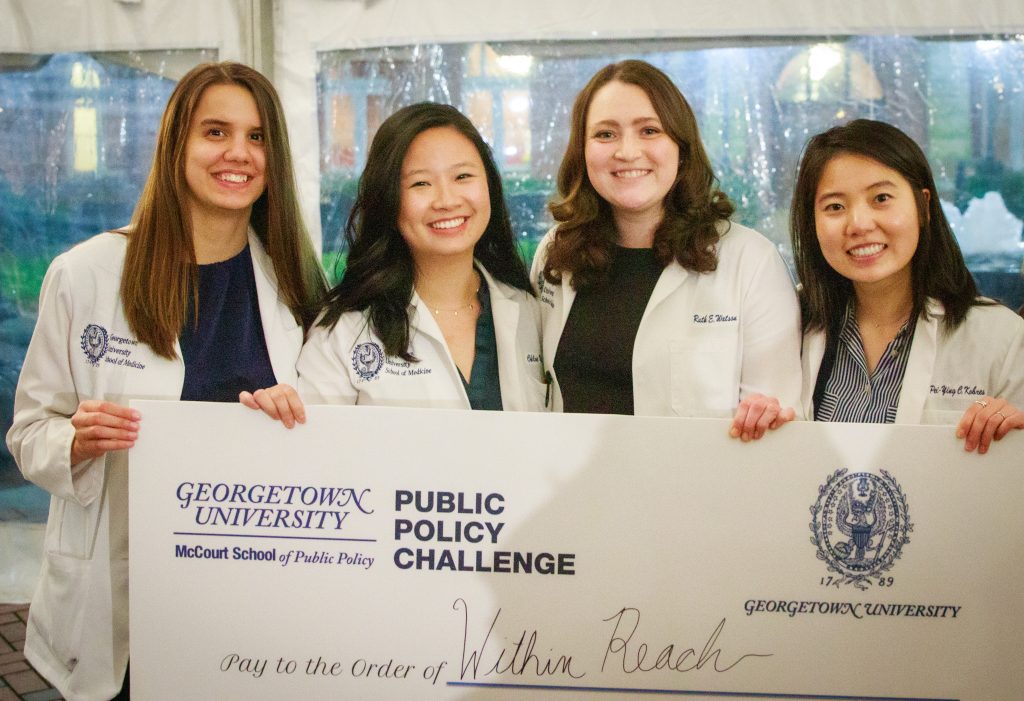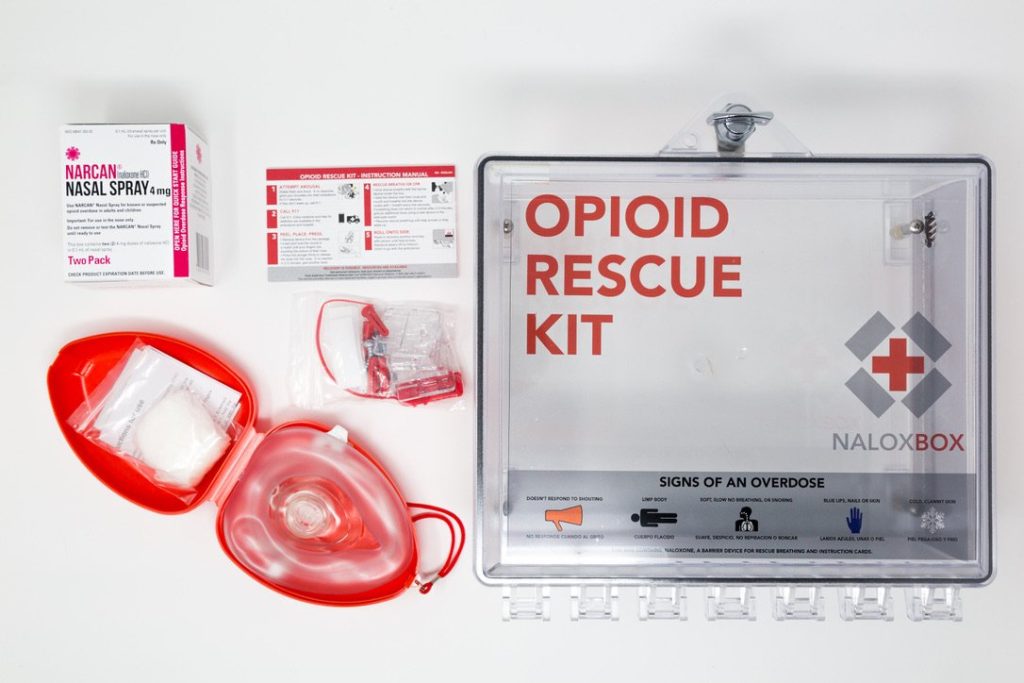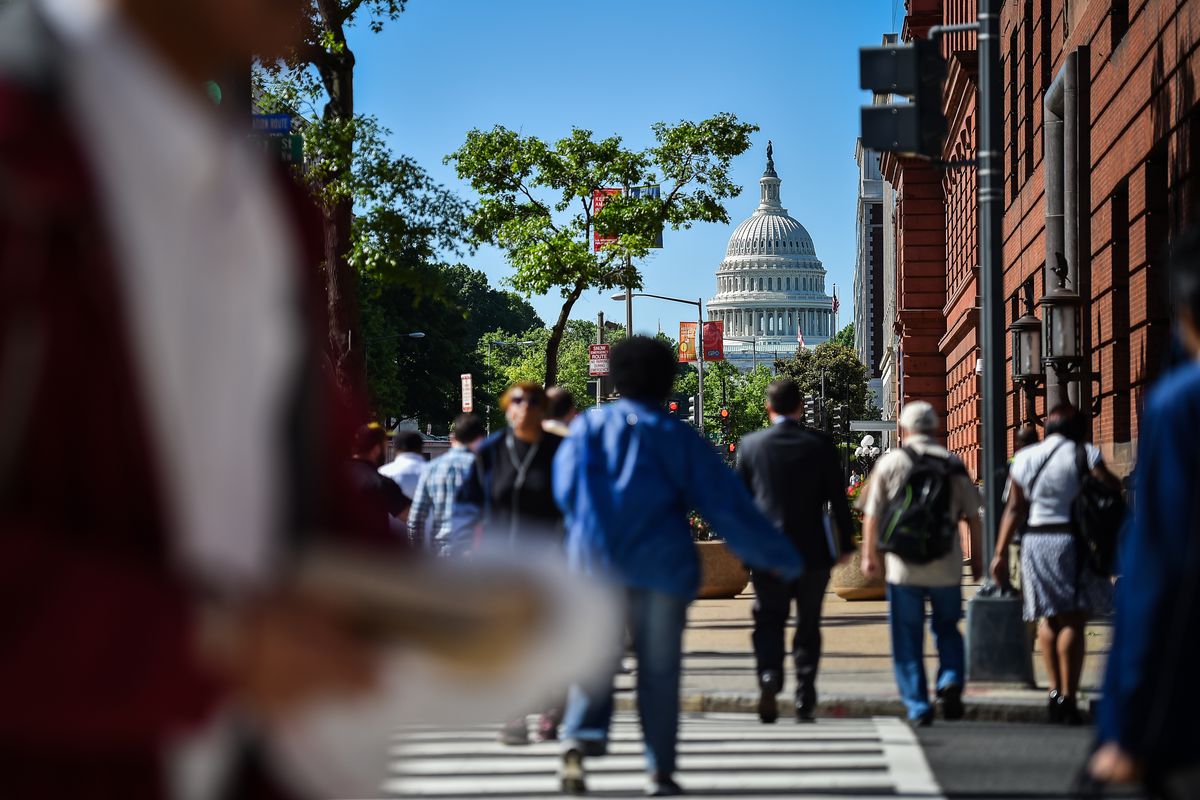The lifesaving moment that inspired the award-winning Public Policy Challenge proposal
Four medical students were awarded the grand prize for their proposal to make opioid reversal medication more accessible to DC residents, aiming to reduce the number of preventable overdose deaths.
Georgetown University School of Medicine students Kira Chandran (M‘23), Pei-Ying Kobres (M‘23), Chloe Wang (M‘23) and Ruth Watson (M‘23) were awarded the grand prize at the 2022 Georgetown Public Policy Challenge final hosted by the McCourt School. Their proposal, “Within Reach: Ending Opioid-Related Deaths in the District,” was recognized as the most outstanding innovative policy solution to help address a challenge in the DC community.

The four students had been trained in substance use, addiction and overdose education — prominent areas of focus at the School of Medicine. Georgetown’s curriculum requires that graduates earn a practitioner waiver to administer, dispense and prescribe buprenorphine, an opioid used to treat opioid use disorder, to better care for at-risk patients. The Hoya Drug Overdose Prevention & Education (DOPE) Project also provides medical students with the opportunity to host community education sessions on opioid overdose and training on naloxone, the opioid reversal medication commonly known as NARCAN.
On a routine trip to the grocery store, Chandran, Wang and Watson were faced with putting their opioid overdose education and training to the test.
A grocery run turned life-saving event
From the car window, they saw a man being carried across the pavement. He looked visibly blue, and without hesitation, they veered off onto a one-way street to help.
Wang and Watson jumped out of the car, armed with a box of NARCAN they had been trained to keep on hand, and approached the man. The medical students called 911 and immediately began the overdose intervention protocol, administering a first and then second dose of the reversal medication.
“Without NARCAN on hand, in the 10 minutes of waiting for the EMTs to arrive, it is likely the man we found may not have survived,” said Wang. “Saving his life was a really impactful moment for all of us.”
Chandran, who arrived on scene after parking the car, worked as an Emergency Medical Technician (EMT) in college and was more accustomed to witnessing overdose events. “Unexpectedly responding to a near fatal overdose in our own backyard inspired us to develop a harm-reduction strategy to get naloxone into the hands of community members and to decrease overdose related deaths and usage in DC,” she said.
Empowering bystanders to save lives
For the Georgetown Public Policy Challenge, Chandran, Kobres, Wang and Watson proposed installing NaloxBox , a weather-proof opioid rescue kit, at bus stops in Wards 5, 7 and 8 to help mitigate the impact of DC’s opioid epidemic. Each carefully-designed kit includes naloxone so that bystander rescuers can easily access and administer the drug to victims of opioid overdose.
They even sought advice from Geoff Capraro, MD, MPH, a co-founder of NaloxBox. “Our shared goal is to shorten the time between an overdose and administering naloxone,” said Watson. “NaloxBox has deployed 1,800 rescue kits nationally, and we believe it could be successfully implemented in DC.”

Pandemic-era restrictions and closures have made accessing resources and treatment for opioid addiction harder.
“At the height of the pandemic, emergency departments saw a significant increase in opioid overdoses,” said Wang. “It is a huge emotional burden on health care workers and takes a toll on our hospital system as well.”
Reducing preventable deaths through public policy
“Addressing the opioid epidemic is a priority of the DC mayor’s office, exemplified through the LIVE. LONG. DC initiative,” said Watson. “As a result, we have access to really good data that shows who is struggling the most with substance use and where overdoses are happening.”
Through their research, Chandran, Kobres, Wang and Watson found that impacts of the opioid crisis are not evenly distributed among all DC residents. Middle-aged men (aged 40-59) in Wards 5, 7 and 8 have the highest levels of morbidity and mortality related to opioids. Eighty-four percent of the opioid-related deaths in those Wards were African American men.
“We have the right pieces of the puzzle to come up with solutions, and we hope to work directly with local government and nonprofit allies who are actively trying to reverse the opioid crisis in DC, and whose existing plans are complementary to our proposal,” said Wang.
As they prepare to enter their fourth year of medical school, Chandran, Kobres, Wang and Watson hope to continue the hard work of influencing policy changes to reduce preventative deaths and to play a pivotal role in combating substance use, addiction and overdose as future doctors.
